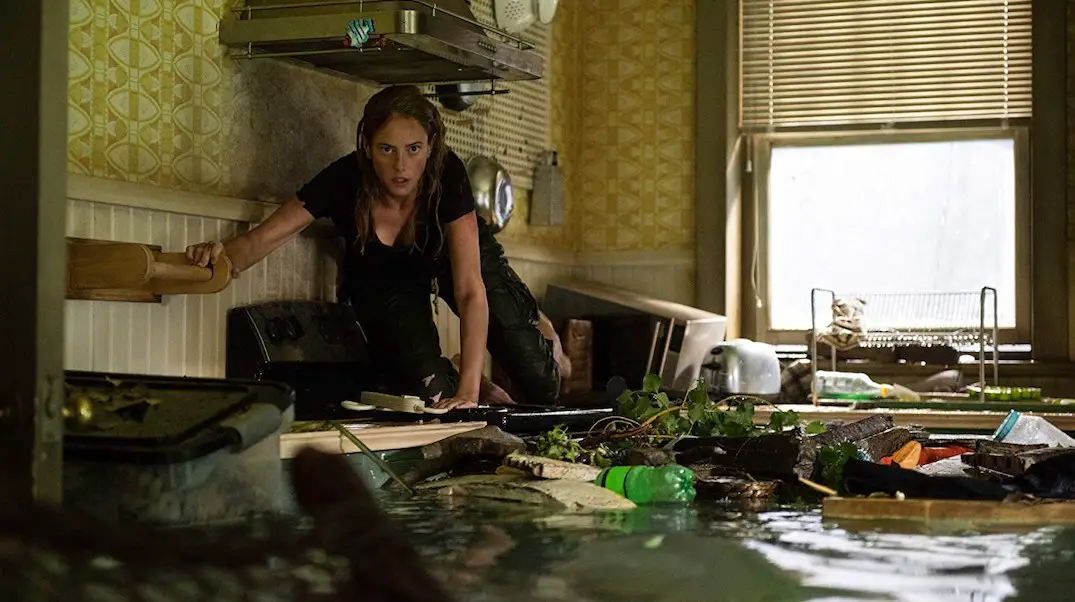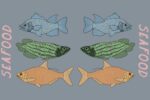The trailer for the upcoming thriller movie “Crawl” has gone viral, registering more than 5 million views less than 24 hours after being put on YouTube. Directed by Alexandre Aja, “Crawl” is about a wayward alligator washing up in someone’s basement in the midst of a Category 5 hurricane, and it seems to be a stirring pot of Florida memes.
Its premise features two of the main comical Floridian stereotypes: hurricanes and alligators. With a wooden house in southern Florida, a basement and locals who actually evacuate for a hurricane, the creators of “Crawl” are clearly not from the Sunshine State; the film’s intended audience is nationwide.
The idea of a strange humid peninsula with alligators, hurricanes and other nefarious aspects, such as meth-cooking and tacky tourist traps, hooks studio executives and moviegoers alike. So how did the Sunshine State penetrate the national consciousness so drastically, and why are audiences obsessed with it?
Florida Man Meme
Florida has been in the national conversation lately because the Internet loves roasting the southernmost state as “Florida Man” memes and news headlines appear, which make the premise of “Crawl” seem mundane.
Just do the so-called “Florida Man Challenge” by Googling “Florida Man” followed by your birthday. If you have a birthday on July 28, you will see headlines like “Florida Man Makes Beer Run with Large Gator in Hand.”
Headlines such as “Florida Man Disguised in Bull Costume Tries to Burn Down House with Spaghetti Sauce” or “Florida Family Butt-Dials 911 While Planning Their Next Meth Cook” have made the state a bit used by mainstream programs such as “The Daily Show” or comedians, like John Mulaney. Why is the rest of America so entranced by the legendary Florida Man to the point where films like “Crawl” can be made?
“No One Would Make Florida on Purpose”
While the other 49 states have one identity, Florida has at least four unique contrasting sections with retirement home-filled tacky beach towns on the coasts, rural rednecks anywhere more than 5 miles inland, the totalitarian city-state of Disney World and Miami. You can’t make this stuff up, folks.
Figuring out how Disney World, alligators, beautiful beaches, meth labs, Trump’s Mar-a-Lago estate and the worst elderly drivers on the planet all exist in relatively close proximity to each other draws in outsiders. The rest of America is just trying to understand how Florida can exist as one unit.
Stories like “Crawl” offer the audience a chance to potentially understand Florida better, while using the stereotypes of alligators and hurricanes that the rest of the United States believe are hilarious.
“They Decide Who’s President” and Other Politics
Florida is an easy target for jokes, Mulaney explains in an interview with Seth Meyers, because the state is a bizarre mixture of conservative Cubans, the elderly, a vibrant LGBTQ culture, rednecks, possums, alligators, serial killers and billionaire tax evaders who all together “decide who the president is.”
Mulaney’s analysis of Florida illustrates another reason why audiences from the other 49 states are invested in the happenings of the Sunshine State: What happens in Florida affects everyone else. Florida is the third most populous state, with over 21 million people and 29 electoral votes, making it the most important swing state.
Florida is a petri dish for America’s hot-button issues, most notably with the controversial deciding votes in the 2000 presidential election. Author Craig Pittman traces many national phenomena to having roots in Florida, such as the “stand your ground law,” as well as the housing bubble of 2008 and perhaps even the Great Depression.
Some of the most important serious events the nation has faced in recent years occurred in Florida, such as the shooting of Trayvon Martin, the school shooting in Parkland and the Pulse nightclub massacre.
Miami is one of the cultural hubs in America, and popular musicians like Pitbull, Kodak Black and Dominic Fike all hail from Florida.
While states such as Maine or Idaho are weird, they are not as relevant to the rest of the nation as Florida is. The idiosyncrasies of the state, from alligators and hurricanes to corrupt politicians, are interesting to a national audience since the trends coming from the bizarre peninsula affect the whole country.
As a result, studios are probably not going to make a film about killer lobsters in Portland, Maine like is currently happening with Floridian alligators in “Crawl.”
The Wild, Wild … South East
The state of Florida has many similarities to the Old West. Although, instead of cowboys and snake oil salesmen, there are crooked New York businessmen running housing scams. Northerners moving into newly developed regions in the ‘60s thought of themselves as “pioneers in station wagons” as they settled the last frontier of overgrown mangroves.
The state government also has a deregulatory zeal, which makes Florida a playground for billionaire property developers wishing to avoid taxes. Additionally, it has the most registered gun permits out of any state in the U.S., making ridiculous-sounding crimes even more possible. Florida has the same wild, exotic appeal that Western films have on the audience, transporting the viewer to a bizarre place where anything can happen.
Wild animals might be a feature in the daily lives of many Floridians like “Crawl” depicts, whether it’s an alligator inside of a local’s house, or a bar owner finding a possum that has had too much liquor. Furthermore, Florida has the most bugs in all of the country.
Unlike Los Angeles or Hawaii, the weather in Florida is like the lovely climate of a soul-sucking sauna. The Sunshine State’s wild animals and a severely hot climate are because of its nature as a flood-prone, storm-battered peninsula on a continuously bulldozed mangrove swamp.
Florida frequently experiences hurricanes and sometimes more severely than most other states. Man-made climate change, the destruction of mangroves acting as natural barriers and the state government’s lack of commitment to infrastructure, which could lessen the impact of storms, have given more validity to the stereotype of Florida dealing with this kind of extreme weather.
Alligators can wind up in a person’s home, but only because the construction of condos has destroyed the reptile’s ecosystem. After all, home-buyers are purchasing properties where mangrove wildlife lived until very recently. There are, though, great warranty deals so all of your appliances in your Florida home are covered — from humidity to (maybe) alligator-caused damage.
The idea of people attempting to live in a tumultuous climate more suited for reptiles than humans attracts non-Floridians.
We All Live in Florida
Ridiculous crimes do happen in Florida, but the reason why the hilarious “Florida Man” headlines are so widespread is because of the Sunshine Act that the state government of Florida has passed. The Sunshine Act makes police arrest records transparent to journalists, who cherry-pick the most absurd cases for their shock value.
While they are not as mainstream as Florida stories, every state in the U.S. has bizarre news headlines, such as “Arizona Man Arrested for Shooting at Moon” or “Iowa Man Shot by Dog.” And, in terms of natural disasters, California has earthquakes and the Midwest has tornadoes.
Florida draws curiosity with its never-ending mystery, the relevance and seemingly wild setting. Yet, the Sunshine State seems to be an easy target, onto which people can project their anxieties about their home states.
Florida jokes make Americans from other states feel better about their own local regions, which is why films like “Crawl” will continue to find an audience.
















